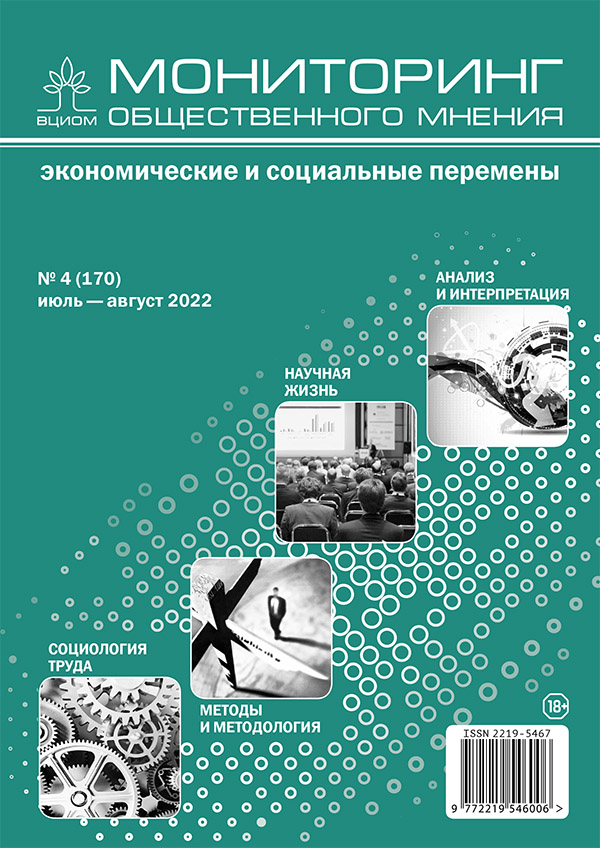«My, Your, Our Houses»: The Housing Property of the Spouses from the Families of the Regional Political Elite
DOI:
https://doi.org/10.14515/monitoring.2022.4.2201Keywords:
non-financial wealth, household wealth, home ownership, gender gap, individualization, individualization of property, administrative dataAbstract
The purpose of the study is to identify the differentiation of housing property depending on socio-demographic factors (gender, marital status), as well as intra-family differences in the housing property of spouses. The study uses administrative data — information on the income and property of deputies of the legislative authorities of the constituent entities of the Russian Federation for 2019, collected as part of anti-corruption activities. In contrast to the available household surveys, these data capture the property (real estate, land, vehicles) of each spouse. Housing (apartments and residential buildings) was selected for analysis as the most common property. Compared to the samples of mass household surveys, the empirical base of the study represents predominantly higher groups of economic stratification, which is the limitation for extending the results to a broader population.
The study allows to shift the focus from the household as a unit of analysis to intra-family economic relations. According to available data, 92% of couples live in housing owned by one of the spouses, but only in 63% of cases both spouses are homeowners. There is a trend towards individualization in the distribution of housing wealth: 70% of apartments and houses owned by men and two thirds of those owned by women are in individual ownership. Based on average data on housing for different socio-demographic groups, it is difficult to capture a gap in housing wealth in favor of men or women. However, in 37% of the couples, men own more apartments or houses than their spouses, and in 30% of the couples the ratio is opposite. Regardless of gender, a spouse who has the status of a member of a regional parliament is more likely to be richer in terms of housing than his/her partner. This pattern is explained by higher personal incomes of deputies. The study highlights the problem of the reproduction of status differences within the family.
Acknowledgments. The article was written based on the IEIE SB RAS state assignment research program, Project № 121040100280–1. The article includes the materials of bachelor thesis by Kristina Moshkova, one of the winners of the IX Russian Sociology Graduation Work competition organized by VCIOM (in the category «Best Bachelor’s degree graduation work»), 2021.
Downloads
Published
How to Cite
Issue
Section
License
Copyright (c) 2022 Monitoring of Public Opinion: Economic and Social Changes Journal (Public Opinion Monitoring) ISSN 2219-5467

This work is licensed under a Creative Commons Attribution-NonCommercial-ShareAlike 4.0 International License.






